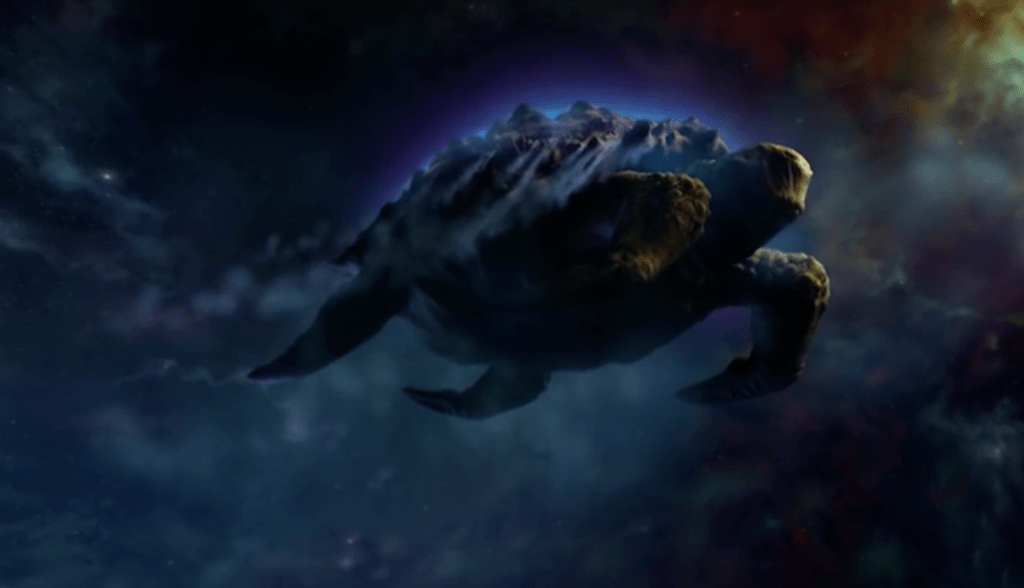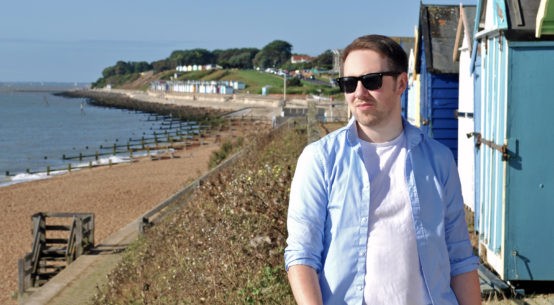
Review by Alyx Jones
Edited by Sam Hughes
Developer: Grimm Bros
Composer: Jade Leamcharaskul
Sound Design: Randis Albion
Reviewed on: Playstation 4
Dragon Fin Soup is a turn based RPG Game that takes inspiration from fairy tales such as Robin Hood and Little Red Riding Hood but doesn’t retell the stories. It is the first game from indie studio Grimm Bros whose 5 man team were successfully funded on Kickstarter and met many of their stretch goals to create this lovely little adventure game. Included in their stretch goals was their port to PS4 and luckily for us is free this month for PS+ members. The game follows the character Red Robin as she awakes in her own bed and soon has to fight off a small attack at the local pub!
whose 5 man team were successfully funded on Kickstarter and met many of their stretch goals to create this lovely little adventure game. Included in their stretch goals was their port to PS4 and luckily for us is free this month for PS+ members. The game follows the character Red Robin as she awakes in her own bed and soon has to fight off a small attack at the local pub!
We realise she has lost her memories and has been staying at this village, helping out the locals while she tries to uncover who she is and what has happened to her. Stylistically the game looks a lot like the old Zelda games from the early 90s, in keeping with the 2D side scrolling systems but with higher quality graphics. It’s definitely something to take you back but be warned, it’s a long game, with 60+ hours of gameplay and missions!
Jade Leamcharaskul joined Grimm Bros to ready their Kickstarter campaign and had her game soundtrack as the first reward tier for anyone who backed the project. Further on down for those who pledged higher amounts there was another reward of an old style music box that played the games theme. This struck me as a lovely way to distribute music at the same time as harking back to the past, with the music, in the same way the game helps players to reminisce about the last century of RPG games.
Alot of the music created for 90s RPG games had to utilise the space available in systems such as the SNES. The S-SMP audio processing unit in  the SNES could only hold 64kB of data, so the file sizes compared to today were so much smaller. However the SCP allowed samples to be triggered through music data with the chip able to reproduce 16 bit sounds. Leamcharaskul has emulated some of these similar sounds of samples being triggered with modern day technology such as the use of MIDI data to trigger samples/virtual instruments rather than having real performances recorded in the studio. While having orchestral studio recordings creates a gorgeous, rich sound, they don’t particularly follow the tradition and progression of game music production, with computers.
the SNES could only hold 64kB of data, so the file sizes compared to today were so much smaller. However the SCP allowed samples to be triggered through music data with the chip able to reproduce 16 bit sounds. Leamcharaskul has emulated some of these similar sounds of samples being triggered with modern day technology such as the use of MIDI data to trigger samples/virtual instruments rather than having real performances recorded in the studio. While having orchestral studio recordings creates a gorgeous, rich sound, they don’t particularly follow the tradition and progression of game music production, with computers.
Jade rides the line between the two, she doesn’t use 16 bit sounds but clearly isn’t trying to make the music sound like a big orchestral production. The result is a quirky 90s RPG feel but with much higher production quality than was available in that time period. It is how you would imagine the original Zelda music might sound if it was reproduced in a modern day setting. She never overloads the pieces with too many instruments, this helps her compositional talent to shine through and lets the listener focus on the content. Her music sounds exactly as you would expect RPG music to be, a folk and fantasy mix of melodies and subtle percussion.
 Randis Albion, a jack of all trades at Grimm Bros, is responsible for the sound effects in Dragon Fin Soup. He heads up the production team as well as being in charge of the game design, art direction, graphics, concepts and finally, SFX within the game. Subtle soundscapes are used in the game in various places, such as bird songs in the forest and dog barks in the villages. They add nicely to the environments, helping to bring them to life.
Randis Albion, a jack of all trades at Grimm Bros, is responsible for the sound effects in Dragon Fin Soup. He heads up the production team as well as being in charge of the game design, art direction, graphics, concepts and finally, SFX within the game. Subtle soundscapes are used in the game in various places, such as bird songs in the forest and dog barks in the villages. They add nicely to the environments, helping to bring them to life.
The sound design in terms of things like the rustling when you walk through bushes/long grass and the swoosh of weapon swinging could use a little more variation to avoid the obvious repetition of the same sound effect 50 times in combat. However, it is more than possible to argue that re-using only one sound file is in keeping with the tradition of audio in this RPG style so it just depends how you look at it!
The only voice acting we hear in the game is the narration at the very beginning of the game, by Matt Harris. The EQ on the vocals is a little boomy, perhaps boosted too far at the low end, however the story telling itself isn’t a problem. Some fans have mentioned that the voice grated on them a little, but I wonder whether the treatment on the vocals is what may have caused this. One of the stretch goals of Dragon Fin Soup was to use voice actors, but they didn’t quite reach it. This is a real shame because it would have been lovely for our main character Red Robin to have a voice or even if the various characters had the “mumbo jumbo” speech, such as made up languages used in the Sims, it might have added to their personalities. Maybe we can look forward to this in their next game venture?
Overall Dragon Fin Soup is a lovely example of an RPG game with plenty of content (did we mention it’s 60 hours?!) and a survival mode that means, once you’re dead, you’re dead, so be careful out there in the long grass, ok?
To see me play (badly):
Official:
Twitter:
Facebook:
We hope you enjoyed the review check out others in our Reviews section :). Don’t forget to sign up to our Monthly Newsletter to make sure you don’t miss out on our reviews and interviews.
The Sound Architect




